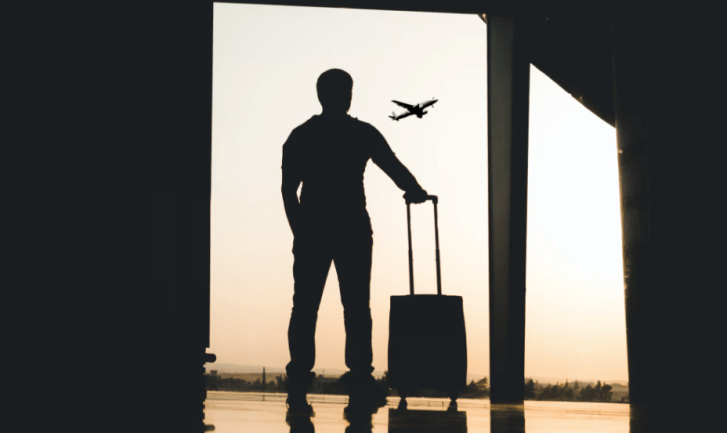
Travelling for work and conferences can take its toll on the body and mind, causing jet lag, lethargy, and disruption to diet and exercise routines.
With international travel back on the cards again, Flight Centre Travel Group’s flagship SME business, Corporate Traveller, has partnered with the Group’s corporate health and wellness program, Healthwise, to offer the top seven useful tips for keeping travellers well when flying.
“Business travel continues to rebound strongly as we get back on planes for meetings, events, and conferences,” Corporate Traveller global managing director, Tom Walley said.
“While it’s brilliant to see so many people embarking on both business and leisure trips once again, the fast pace of travel can make it challenging to prioritise a healthy lifestyle on travel days. An early morning flight can impact energy levels, while a long flight can create prolonged periods of sedentary behaviour and frequent in-flight food orders.
“By combining our experience and insights in business travel and its accompanying health risks, with some insights by Healthwise, we’ve created a list of easy and practical ways for travellers to keep their health and fitness levels in check.”
Designed to inspire and motivate people to live their happiest and healthiest lives, Healthwise global business leader Tod Horton said Healthwise was proud to have looked after the health and wellbeing of Corporate Traveller employees, especially when they are travelling.
“Even if they’re short on time and seeking convenience, business travellers can still maintain and improve their health. Something as simple as walking the length of the plane is worth doing. When it comes to your wellbeing, every little step helps.”
Here are Healthwise’s top seven tips on staying well and healthy when travelling:
1. Pack a basic health kit
A small health kit should be able to temporarily manage the symptoms of minor injuries, illnesses and pre-existing conditions while travelling. Bring adequate supplies to last the duration of your trip and pack items such as adhesive bandages, gauze, antiseptic solution, painkillers, decongestants, rehydration salts, allergy medications and topical creams to treat bug bites and stings.
2. Perfect your pre-airport routine
Use the night before your flight to prepare for the hustle and bustle of airport check-in and security. Pack yourself a healthy snack for the flight, get an early night’s sleep and have a quick but balanced breakfast. It’s also worth checking your journey to the airport the night before in case there are scheduled roadworks on your route. These extra steps of preparation will help reduce any unplanned stresses ahead of departure.
3. Use seat selection to your advantage
Once you have made it on board, it is easy to sink into your seat and settle in until landing time. However, remaining immobile for several hours will leave your body working harder to pump blood from your legs back to your heart. By selecting an aisle seat at the time of booking, you will ensure you can get up and use the aisles to stretch your legs.
4. Avoid caffeine and alcohol
Alcoholic and caffeinated drinks are a tempting option when travelling, but their diuretic nature combined with the humidity levels on planes increases the risk of dehydration. It’s best to stick to bottled water when flying, and if you’re travelling on a long-haul flight, consider trying a hydration tablet full of electrolytes to assist with water absorption.
5. Eat balanced meals, in moderation
It’s easy to slip into unhealthy food habits when travelling, but foods with processed sugars can cause our energy levels to peak and crash, so are best avoided if you want to optimise your energy levels. In addition, moderation is key. If you’ve had a meal of lean protein, vegetables, and wholegrains, a scoop of ice cream won’t hurt.
6. Stay on the move when on the move
Staying active can help your body acclimatise to your new location. Consider going for a walk after you check in to get the blood circulating or consider packing compact fitness items, such as resistance bands, that you can use in your hotel room. Simple exercises such as squats, burpees and bicycle crunches can all be performed in small indoor spaces.
7. Play your part in infection control
While COVID-19 is less of a concern this year, we all have a responsibility to protect ourselves and others from all kinds of infection. The best defence is basic hygiene such as thorough hand washing, especially after coughing or sneezing, and wiping down surfaces in high-touch areas such as tray tables and armrests. It’s also worth keeping an N95 mask handy in case it is required at your destination.



